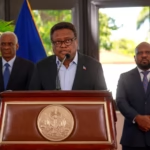The Trump administration abruptly reversed course on Friday, halting a wave of student visa cancellations that had affected more than 1,500 foreign nationals.
This policy reversal was announced during a hearing in Washington, where Justice Department attorney Joseph F. Carilli stated that the immigration agency was developing a new evaluation system for student visas.
According to Carilli, until this new procedure is finalized, “the agencies will not take any additional action or proceed with further revocations.”
This announcement follows a series of individual complaints filed by students who had their legal right to study in the United States revoked, often without clear explanation, as reported by The New York Times.
Among the documented cases, some affected students had committed minor infractions, such as traffic violations. For others, no apparent justification was provided at the time of visa cancellation.
The climate of uncertainty has sparked panic across university campuses, even forcing some students to voluntarily leave the country. One such case involved a graduate student at Cornell, who reportedly abandoned legal proceedings before departing.
Concerns have intensified since March when the Trump administration began revoking visas of several students who participated in demonstrations related to the Gaza conflict. These young people had protested against Israeli government attacks that killed over 50,000 Palestinians in Gaza, following a Hamas militant attack in Israel that resulted in more than 1,200 deaths.
Some students who chose to protest on American campuses were subsequently targeted for deportation proceedings.
Federal judges had halted some of these decisions, determining that the administration’s actions risked going too far.
Despite these legal restraints, pressure remained high on international students. Many young people from India and China, in particular, recently received revocation notices, disrupting their academic journey overnight.
During Friday’s hearing, Carilli indicated that the government was considering filing this new policy direction in other legal proceedings, potentially offering hope to some students wishing to stay until their graduation in spring.
Additionally, other legal challenges, including a class-action lawsuit being prepared in New England, seek to more broadly block the administration’s visa revocation actions.
The New York Times, which first reported this information, indicates that Immigration and Customs Enforcement authorities did not respond to a request for comment at the time of the article’s publication.







